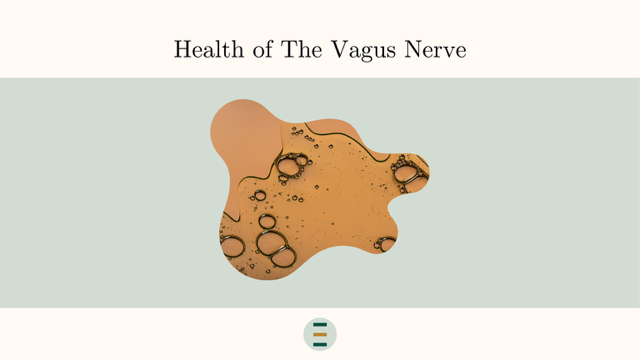Have you ever heard of the “wandering nerve”? The vagus nerve, also known as the wandering nerve, earned this name due to its extensive reach throughout the body. This tenth cranial nerve is a critical player in regulating many bodily functions, including digestion, heart rate, and immune response. But did you know that certain vitamins and minerals can support the health and function of this important nerve? In this blog post, we will dive into the exciting world of vagus nerve stimulation, exploring how this nerve works and the many benefits it provides. We’ll also uncover the top vitamins and minerals that can support vagus nerve health, so you can give this wandering nerve the TLC it deserves!
The vagus nerve is an important part of your body’s parasympathetic nervous system. It plays a key role in controlling the heart rate, respiratory rate, blood pressure, and digestive functions.
Vitamins and minerals that stimulate the vagus nerve are important tools to keep in mind when life gets overwhelming. The vagus nerve is one of the largest cranial nerves in the body, running from the brain stem down through multiple organs such as the heart and stomach. Stimulation of the vagus nerve can help to reduce stress, anxiety, and improve overall mental and physical health.
Fortunately, there are several vitamins and minerals that have been linked to supporting the vagus nerve:
- Vitamin B6: Also known as Pyridoxine, this vitamin is involved in the production of neurotransmitters such as serotonin and dopamine, which play key roles in regulating mood, appetite, and sleep. All of which are closely linked to the vagus nerve. Some studies have found that vitamin B6 may help reduce inflammation in the body as well, indirectly benefiting the vagus nerve.
- Vitamin B12: This important nutrient is involved in the production of myelin, a fatty substance that coats nerve fibers and helps them transmit signals more effectively. Myelin is crucial for proper nerve function, and a deficiency in vitamin B12 can lead to nerve damage and dysfunction.
- Magnesium: This mineral has been shown to help regulate the nervous system and may help improve nerve function by regulating the flow of calcium into nerve cells. This can help prevent overstimulation of nerves and reduce the risk of nerve damage and dysfunction.
- Zinc: Zinc is important for nerve function and can help support the structure and function of the vagus nerve. This mineral is involved in many aspects of nerve health, including myelination, neurotransmitter production, and nerve signal transmission.
- Vitamin D: This vitamin covers all the bases when it comes to promoting overall nerve function. From myelination, neurotransmitter production, nerve signal transmission, and its anti-inflammatory properties, vitamin D does it all
- Vitamin C: With its potent anti-inflammatory properties, vitamin C supports nerve health and function, while its antioxidant properties protect cells from damage caused by free radicals. This is particularly important for nerve cells, which are especially vulnerable to oxidative stress.
- Choline: A precursor to acetylcholine, which is a neurotransmitter that is involved in many of the body’s autonomic functions, including regulating heart rate, digestion, and immune response, which is all closely linked to the vagus nerve.
Having these vitamins and minerals in your multivitamin can be beneficial for maintaining good health overall as well as helping to stimulate the vagus nerve when you need it most. The benefits of stimulating the vagus nerve include increased relaxation, improved heart rate variability (HRV), reduced inflammation, better digestion and improved cognitive performance. It can also help reduce stress levels and give you more energy throughout the day.
When life gets overwhelming and stressful, it’s important to remember that there are tools available to help us cope with such feelings and manage our stress levels. Taking a multivitamin with vitamins and minerals that support the vagus nerve is one such tool. By providing your body with these essential nutrients, you can help reduce stress levels and maintain better overall health in the long run.
With careful planning, you can get all the key essentials needed for stimulating the vagus nerve as part of your daily routine. Taking the time to understand how vitamins and minerals can help you maintain your health is a powerful tool worth keeping in mind.
By maintaining healthy levels of key vitamins and minerals, you can keep your body functioning optimally and reduce stress levels when life gets overwhelming. Understanding the importance of the vagus nerve and how it’s intimately connected with our overall physical and mental well-being is crucial. Taking care of yourself is a top priority, so don’t forget about taking those multivitamins! They help make all the difference. Cheers to YES!

